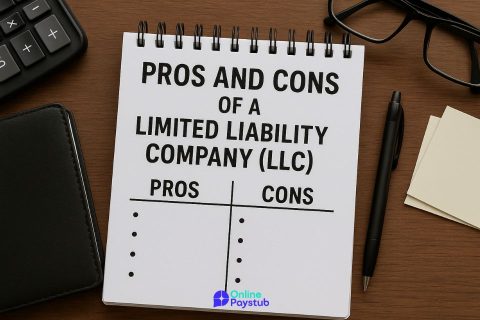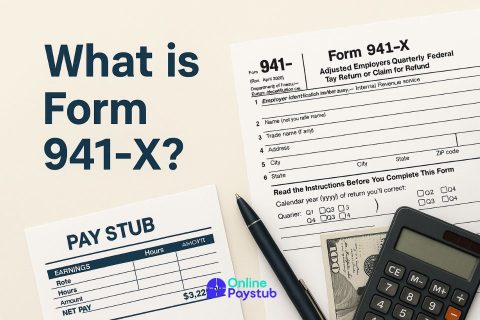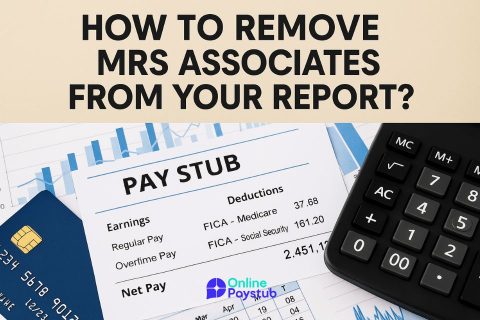An Employer Identification Number (EIN) is a unique nine-digit number issued by the IRS to identify businesses and other entities for tax purposes. Think of it as a Social Security number for your business. Whether you’re starting a company, hiring employees, opening a business bank account, or applying for licenses, an EIN is often required.
What Is an EIN and Why You Might Need One
An EIN, also known as a Federal Tax Identification Number, is used by the IRS to track tax obligations of businesses and organizations. It is issued free of charge and is essential for a variety of financial and legal tasks.
Common reasons to get an EIN:
- Hiring employees
- Opening a business bank account
- Filing federal or state taxes
- Operating as a corporation or partnership
- Applying for business licenses or permits
- Establishing retirement or health plans for employees
EIN vs. SSN vs. ITIN:
- EIN: For business entities
- SSN: For individuals (U.S. citizens or residents)
- ITIN: For nonresident individuals not eligible for SSNs
Even sole proprietors without employees often get an EIN to keep personal and business finances separate.
Who Needs an EIN?
While not all small business owners are required to obtain an EIN, many entities must have one for compliance and functionality.
Entities that need an EIN:
- Corporations
- Partnerships
- LLCs with more than one member
- Sole proprietors with employees
- Nonprofit organizations
- Trusts and estates
- Farmers’ cooperatives
- Retirement plans and other entities filing employment tax returns
You also need an EIN if you:
- Withhold taxes on income (besides wages) paid to a non-resident alien
- Have a Keogh plan
- Are involved in banking or real estate investment trusts
If you’re unsure whether you need an EIN, the IRS EIN Assistant provides a helpful eligibility checklist.
How to Apply for an EIN Online (Step-by-Step)
The fastest and most convenient way to get an EIN is through the IRS EIN Online Application, available Monday through Friday, 7 a.m. to 10 p.m. Eastern Time.
Step-by-step guide:
- Go to irs.gov/ein
- Click “Apply Online Now”
- Choose your entity type (e.g., LLC, sole proprietor)
- Enter your information, including:
- Legal name
- Mailing address
- Responsible party’s SSN or ITIN
- Reason for applying (e.g., hiring, new business)
- Review and submit the application
Instant EIN assignment:
If everything is filled out correctly, you’ll receive your EIN immediately on-screen and via downloadable confirmation letter (Form SS-4 confirmation). No need to wait for a physical letter.
Other Ways to Apply for an EIN (Phone, Fax, Mail)
If you can’t apply online, the IRS also offers alternative application methods.
- Fax:
- Complete Form SS-4 and fax it to:
- (855) 641-6935 (within the U.S.)
- Response time: usually 4 business days
- Complete Form SS-4 and fax it to:
- Mail:
- Send the completed Form SS-4 to:
- Internal Revenue Service, Attn: EIN Operation, Cincinnati, OH 45999
- Processing time: up to 4–5 weeks
- Send the completed Form SS-4 to:
- Phone (for international applicants only):
- Call +1-267-941-1099 (not toll-free)
- Hours: Monday–Friday, 6 a.m. to 11 p.m. ET
- EIN is assigned during the call after verbal application
Tip: Always download or request a copy of your EIN confirmation for banking and tax records.
Common Mistakes to Avoid When Applying
Applying for an EIN is easy but small errors can delay the process or require reapplication.
Avoid these pitfalls:
- Submitting Form SS-4 without determining correct entity structure
- Using the wrong responsible party (must be a real person, not the business)
- Entering a mailing address with typos or mismatches
- Applying too early e.g., before forming an LLC with your state
- Failing to save or print your EIN confirmation letter
Important: Do not apply for multiple EINs for the same entity. It can result in IRS confusion or account lockout.
When You Need a New EIN
You don’t always need a new EIN, even if your business changes. But there are certain situations where a new number is legally required.
You need a new EIN if:
- You change your business structure (e.g., from sole proprietorship to corporation)
- A partnership incorporates
- A new partnership is formed after one partner leaves
- You purchase an existing business and operate it as a different entity
You don’t need a new EIN if:
- You change your business name
- You relocate your business
- You add a new location
- Your business structure stays the same but the ownership remains consistent
When in doubt, consult the IRS EIN guidelines to determine if a new EIN is necessary.




No comments to show.